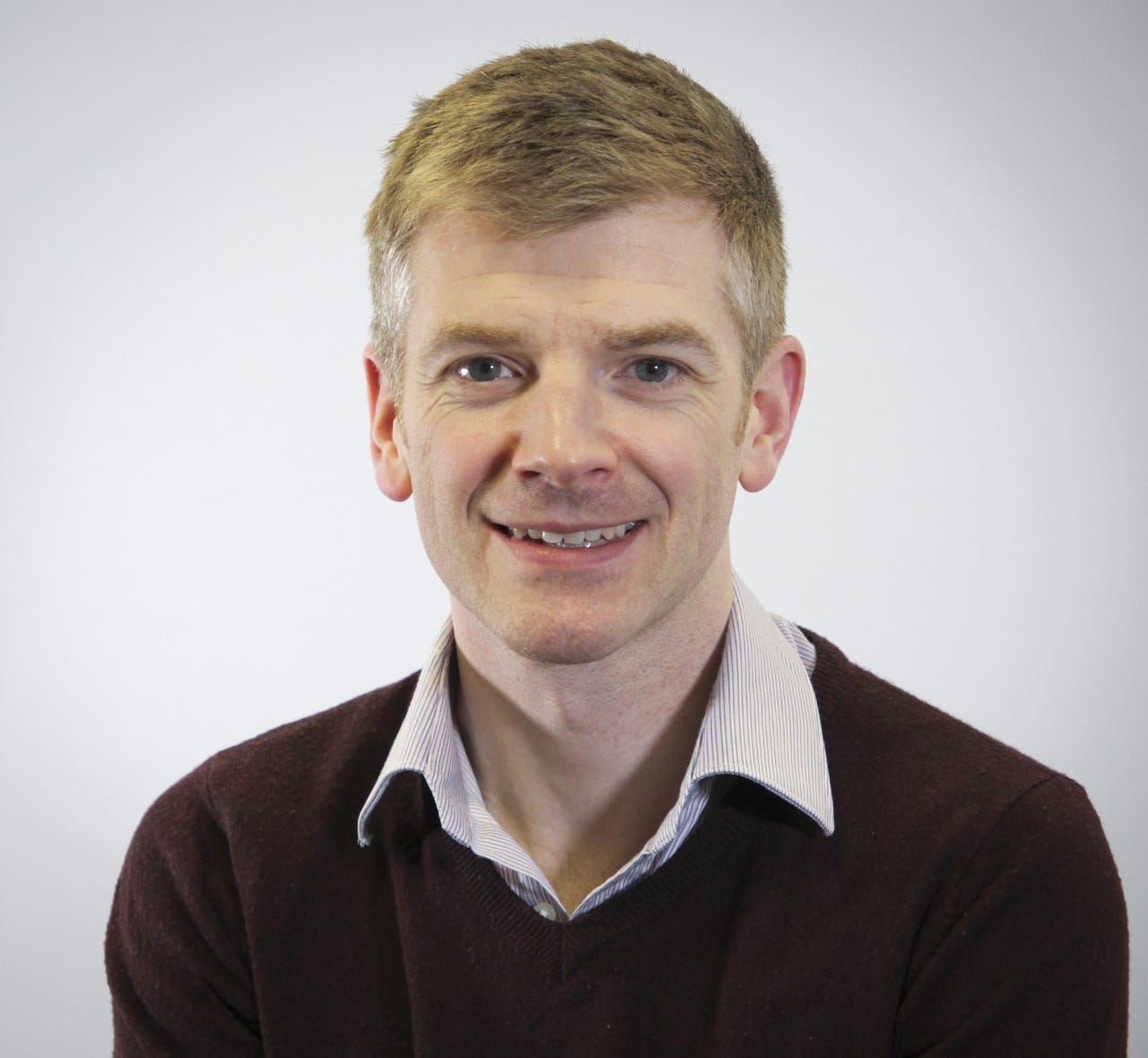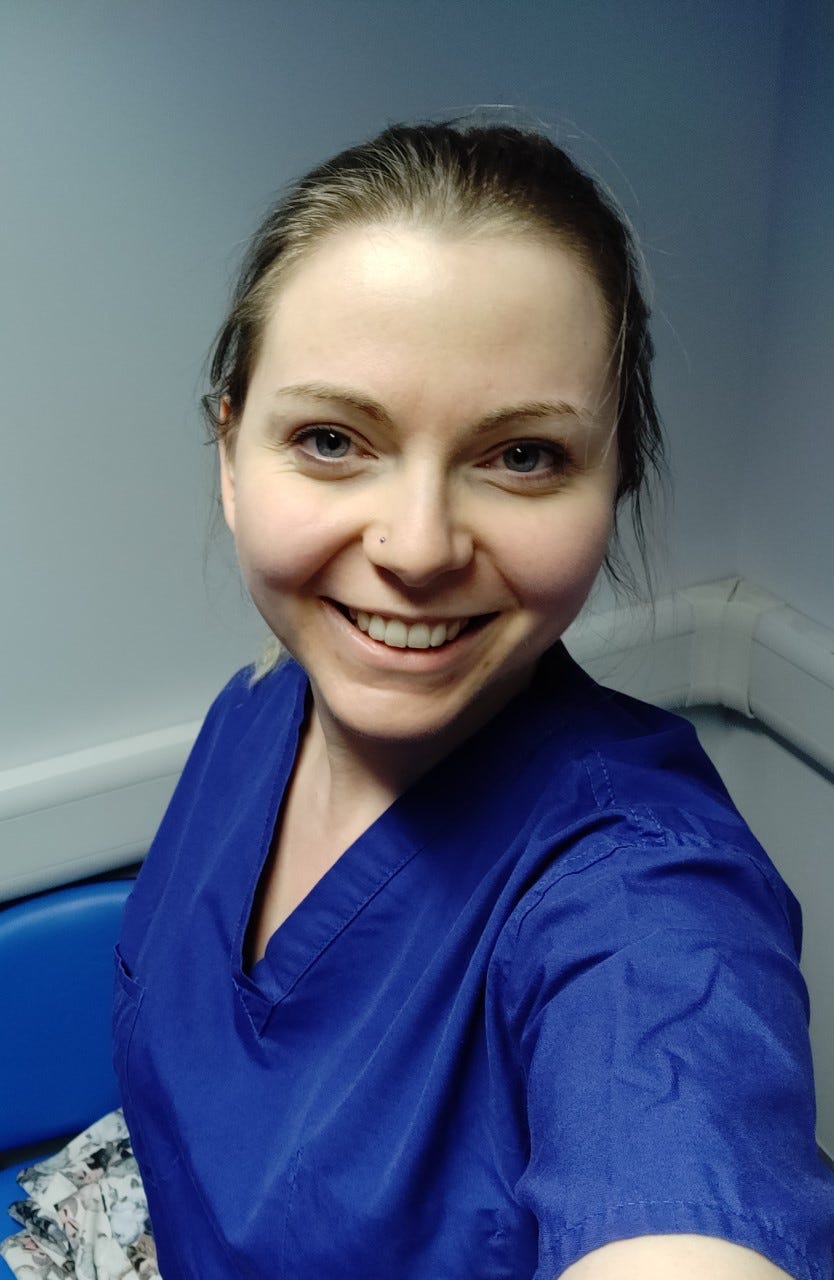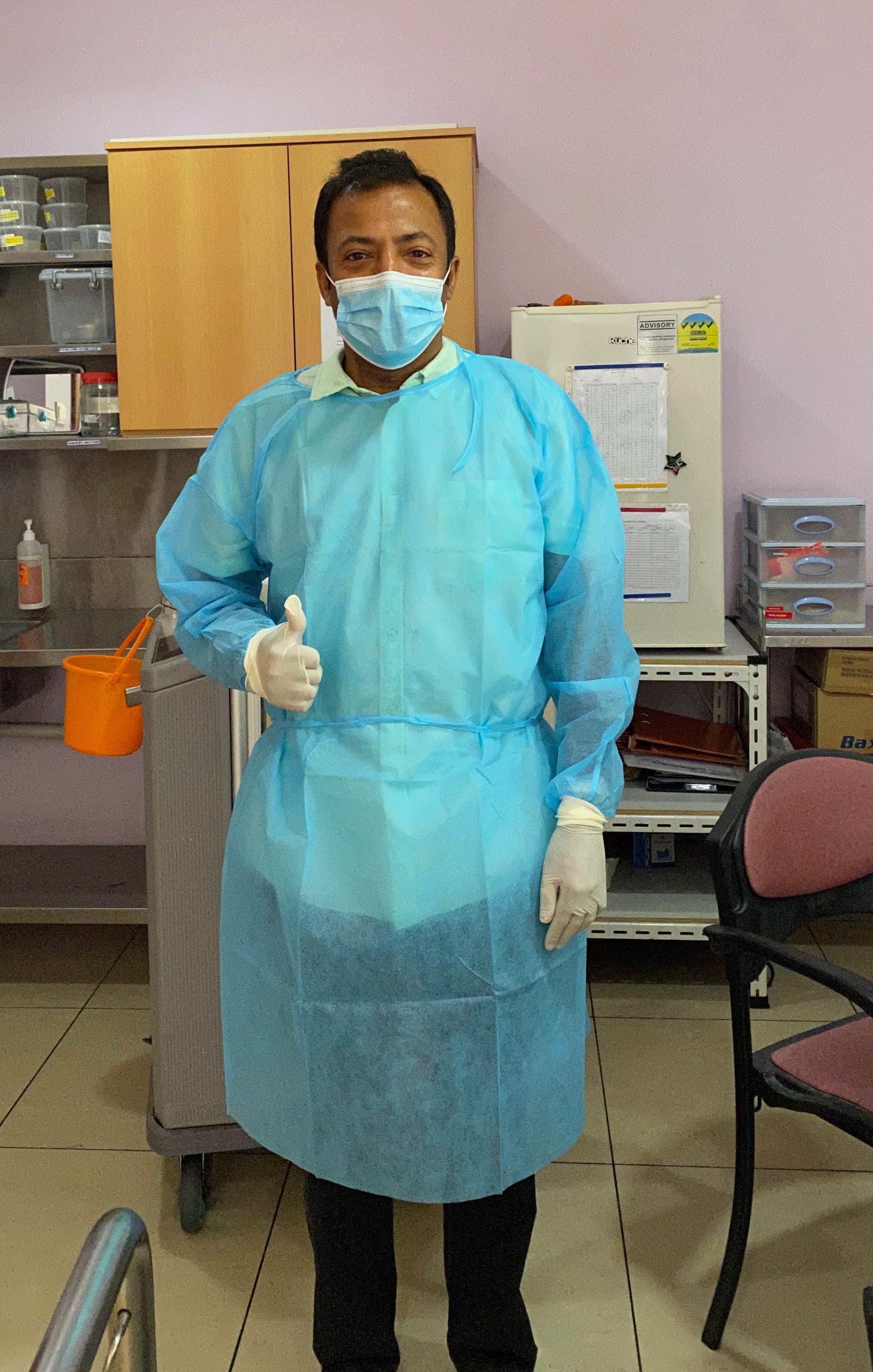I hope that, as a society, we do not forget our appreciation for the frontline staff who work incredibly hard to take care of us at our most vulnerable moments.
Sophie Callis (2009)
Coronavirus has radically transformed working life for people the world over, but perhaps no one group has been quite so impacted as those on the medical frontlines. In this post, three Johnians working in healthcare outline their experiences of the pandemic and their views on how our attitudes and practices might be positively changed in a world post-COVID.
COVID-19 crept up on us, then changed the way we both work and live. While the impact has been devastating, some of our responses hold lessons for the future.

For half the week, I am a child psychiatrist. We have moved out of the clinic and now work from home, using video and telephone. We visit some patients in their own home. We’ve had fewer referrals than normal, perhaps because the anxiety associated with school is on hold. Those patients who we do see tend to be more complex and are suffering without the structure and support usually provided by school, social services and grandparents.
For the rest of the week, I work at NHS Digital, trying to make better use of data from the NHS for research and to improve services. This is usually a slow process, but since lockdown things have been moving very quickly. I have worked on a project to identify individuals who have recovered from COVID-19 and could now donate plasma to help those still suffering, or yet to suffer. I then worked on a system to identify people who should be shielded. I am now working on the NHS COVID-19 Tracing App.
Pre-COVID, each of these projects would have taken many months or years to complete. Hopefully, some of the new ways of working we’ve developed will outlive the virus.
- Tom Foley (2003)
I qualified as a Clinical Psychologist three days before the UK locked down. While friends and family were being furloughed, I was thrown into the deep end with my first job in a specialist heart and lung hospital treating COVID patients. On my third day, I was getting kitted up in scrubs, a mask and visor, two gowns, and two pairs of gloves, in order to see a patient experiencing anxiety during recovery from COVID.

Intensive care is a scary place to be at the best of times. Twenty percent of patients who survive ICU go on to experience PTSD after discharge. In the aftermath of the first wave of COVID, I expect we may see an even higher prevalence. Patients often experience traumatic memories of hallucinations and delusions caused by delirium while they are critically unwell. COVID is a risk factor for delirium, and restrictions prevent us from doing many of the things we would normally do to help people feel safe, such as seeing family. Being surrounded by staff in PPE can make communication difficult and can also fuel frightening delusions.
One silver lining of this situation is seeing the generosity of the public donating to key workers, and the development of staff wellbeing initiatives. I hope that, as a society, we do not forget our appreciation for the frontline staff who work incredibly hard to take care of us at our most vulnerable moments.
- Sophie Callis (2009)
It’s June 2020 and the planet is getting over the most deadly viral pandemic in our living memory.

I’m a Johnian medic (1993). During my time in A&E medicine I’ve seen gunshot wounds to the head in London, poisonous snake bites in Alice Springs, Australia, and the 2003 SARS epidemic in Singapore when the triage area was the hospital car park and doctors were dressed in PPE in the tropical heat — all very uncomfortable.
I’m a GP in Singapore and have been working daily through COVID-19. Despite Singapore having the world’s highest per capita Coronavirus case rate, I’ve not seen any patients with Coronavirus. There’s a population memory of viral pandemics here, which led to a strict and fast response: early border closures, early population lockdown, aggressive testing of symptomatic patients with isolation of close contacts and stiff legal penalties for those who flout the rules. All of these factors have helped to keep Singapore safe.
If this ever happens again in our lifetimes, the world will be better prepared. I’m looking forward to a beach holiday in the Maldives once COVID-19 is finished.
- Raj Jayarajasingam (1993)
We’d love to stay connected to you during this global crisis and hear how you are coping. Email us on development@joh.cam.ac.uk.
